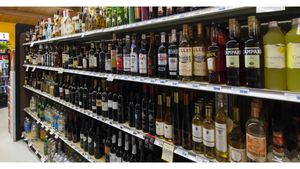What a girl wants
January 1, 2018
National brands are innovating the feminine hygiene category, and private label is not far behind. This in-demand category is experiencing a facelift and retailers are benefiting from the sales. Ask any woman out there and they will tell you how much quality matters when it comes to feminine care. The comfort and functionality of such products can make or break a girl’s day. Considering this, it is no surprise industry observers say innovation is a category driver. Every girl wants to find the next best thing. “There are two key trends emerging: the first is rejuvenation and the second is innovation,” says Sebastien Bourassa, sales and marketing vice president for Fempro I, based in Drummondville, Quebec, Canada. “During the recession there was a lack of innovation, opening the door for private label to pull ahead. Then came Kotex’s launch of U by Kotex kick-starting the category with its unique marketing approach and by interacting with its consumers. It challenged the category.” According to SymphonyIRI Group, a Chicago-based market research firm, for the 52-week period ended Jan. 22, across food, drug and mass merchant outlets, excluding Walmart, U by Kotex Clean Wear Sanitary Napkins/Liners saw a 42.2% increase in dollar sales and a 28.7% increase in unit sales, while U by Kotex Click Tampons brought in $45.6 million in sales, a 39% increase over the previous year. FemPro I was the first private label manufacturer to launch a national brand equivalent offering last summer. “This launch did not go unnoticed as the brands and other retailers were impressed at how creative and quick we were to respond,” says Bourassa. National brand innovation successfully kept private label growth at bay in the sanitary napkin/liner and tampon categories, which saw a 0.9% increase and no change in dollar share for sanitary napkins/liners and tampons, respectively. Brands, such as Always Infinity and, new to the market, Carefree Acti Fresh grabbed an additional 1.2% and 3% dollar share in the sanitary napkin category, and Playtex Sport and U by Kotex took an additional 2% market share in the tampon segment. Private label, however, saw significant growth in complementary feminine care categories, such as vaginal treatments and personal lubricants. “Many consumers on a tight budget have stayed with private label products for particular items,” says Bourassa. “Retailers should focus on new products from brands while continuing to develop their private label program to drive sales.” Natracare was another brand that saw sales growth during the recession, indicating that organic and all-natural shoppers stuck by their choice to invest in a healthier lifestyle despite hard economic times. “Shoppers are increasingly more concerned with the provenance of brands and products,” says Theresa White, senior executive officer for the Greeley, Colo.-based company. “They understand the environmental, social and economic implications of their purchases.” The organic, all-natural category has seen drastic growth across the health and beauty care category, not to mention the grocery store, note industry observers. “Retailers can maintain stable sales by offering their customers products that meet their demands,” says White. “Retailers should provide the organic and natural category a position of value to show they are committed to the category and are supporting consumer’s desires to live healthy and natural.”
About the Author
You May Also Like




